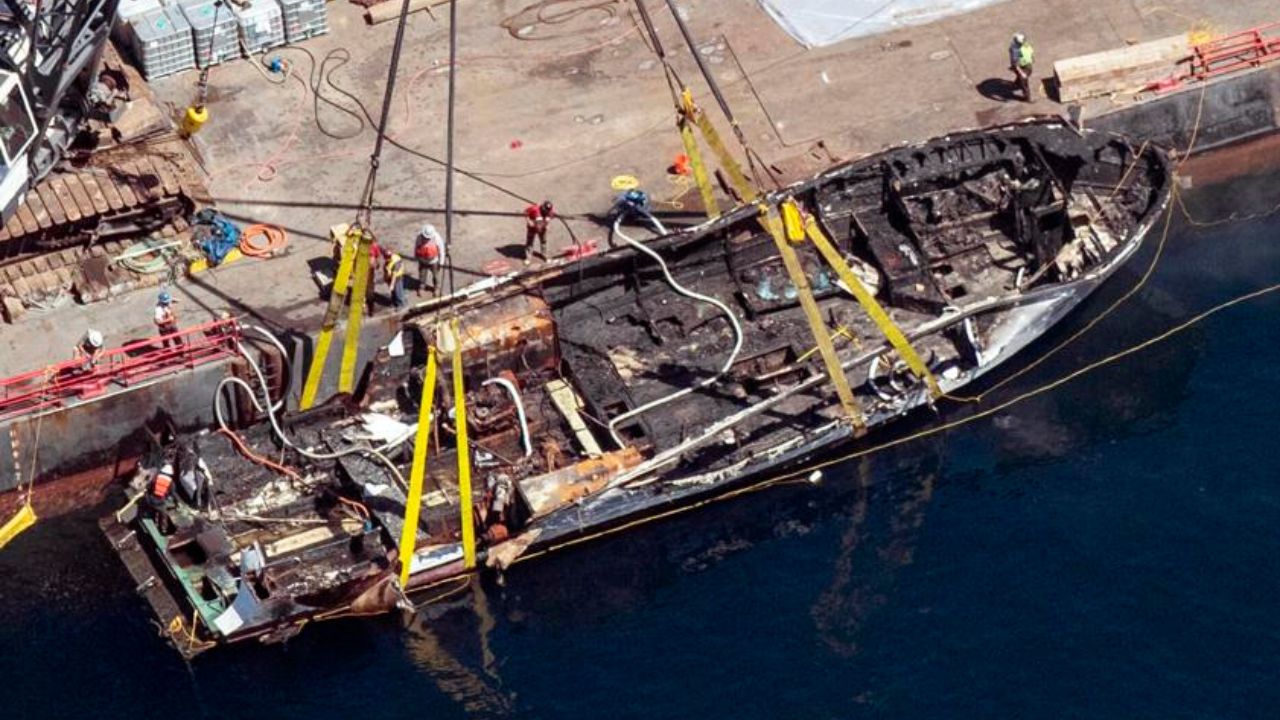The deadliest maritime disaster in recent U.S. history occurred when a scuba dive boat caught fire and sank off the Southern California coast. By the time this tragedy took place on Labor Day in 2019, it had claimed the lives of 34 people. This incident prompted significant changes in maritime regulations, congressional reform, and a series of civil lawsuits. Four years later, a federal trial for the boat’s captain, Jerry Boylan, was underway with jury selection in federal court in Los Angeles.
The families of the victims have endured a long and frustrating wait for justice. Kathleen McIlvain, who lost her 44-year-old son Charles in the tragedy, described the past four years as a never-ending nightmare.
On September 2, 2019, the 75-foot boat, named the Conception, was anchored off the Channel Islands, 25 miles south of Santa Barbara, when it caught fire before dawn on the final day of a three-day excursion. It sank less than 100 feet from the shore. The National Transportation Safety Board attributed the tragedy to Boylan’s failure to assign a night watchman, allowing the fire to spread undetected, trapping the passengers and crew below deck.
The victims included a new deckhand pursuing her dream job, an environmental scientist conducting research in Antarctica, a globe-trotting couple, and a Singaporean data scientist. The families of the victims have eagerly awaited justice and the start of the healing process.
The trial faced setbacks, including a request by Boylan’s defense to avoid referring to the victims during the trial, which they argued could prejudice the proceedings. The charges against Boylan have also evolved, with the original 34 counts reduced to a single count of misconduct or neglect of a ship officer, carrying a maximum sentence of 10 years in prison if convicted. Boylan maintains his innocence.
The exact cause of the fire remains unknown, with early suspicions focused on an area where divers charged electronic devices. However, a confidential report by the Bureau of Alcohol, Tobacco, Firearms, and Explosives suggested that the fire began in a plastic trash can on the main deck. The investigation has not determined an official cause.
Boylan and four crew members made efforts to save the passengers but were forced to abandon ship. Dozens of family members formed “Advocacy34” to advocate for stronger boating regulations while seeking answers and supporting each other through the grief and uncertainty.
The National Transportation Safety Board faulted the Coast Guard for failing to enforce the requirement of a night watchman and recommended the development of a program to ensure boats with overnight passengers have such a watchman. Victims’ families have pursued civil suits against the Coast Guard.
At the time of the fire, no citations or fines had been issued to owners, operators, or charterers for failing to post a roving patrol since 1991, according to Coast Guard records. New regulations regarding fire detection systems, extinguishers, escape routes, and other safety measures have been implemented since the incident.
Truth Aquatics Inc., owned by Glen and Dana Fritzler, filed a lawsuit to limit its liability under a pre-Civil War provision of maritime law, similar to the legal tactic used by the owners of the Titanic. Federal lawmakers updated the Limitation of Liability Act of 1851 to hold owners liable for damages regardless of the boat’s value afterward, in response to the families’ concerns, but this change does not apply retroactively to the Conception fire.
READ MORE
Major Lawsuit: 33 States Take on Meta for Its Impact on Youth Mental Well-being
